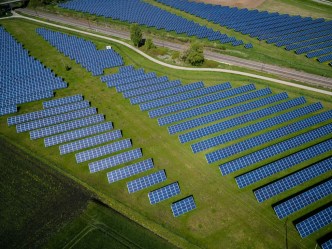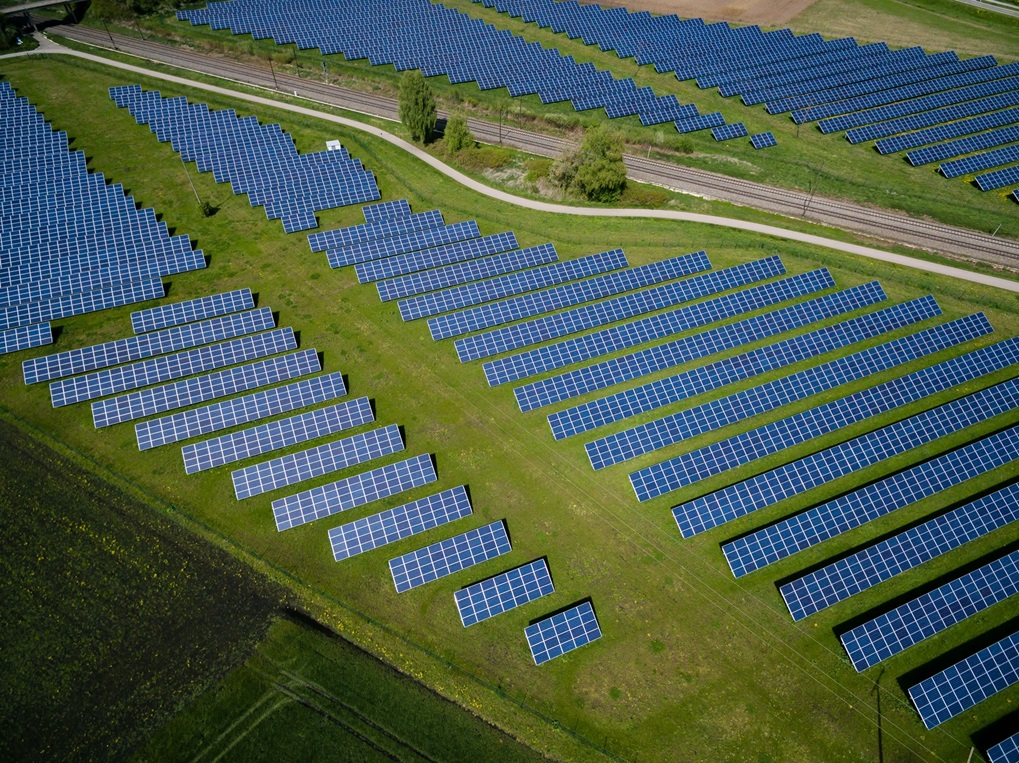More businesses are motivated to incorporate renewable energy into their operational and financial planning. Economic benefits, alongside environmental imperatives, are driving this shift.
Some studies indicate the strong link between renewable energy usage and economic growth, indicating that increased use of renewable energy can significantly propel economic performance.
This comprehensive guide explores the challenges businesses face in managing fluctuating energy costs and the innovative tools and strategies they employ to optimize their renewable energy budgets. Additionally, we will emphasize the critical role of technology in monitoring and forecasting energy expenditures.
The economic and environmental motivations behind the shift
As organizations grapple with the dual pressures of reducing carbon footprints and optimizing operational costs, the move toward renewable energy becomes increasingly appealing. Harnessing sustainable energy sources aligns economic growth with environmental stewardship, offering a viable solution for future-ready enterprises.
- Cost savings
Renewable power sources, like solar and wind, offer substantial operational cost savings compared to traditional fossil fuels. Businesses benefit from government incentives and tax credits that help offset the initial investment in renewable energy infrastructure.
Reducing energy bills over time can have a notable positive impact on a company’s bottom line.
- Environmental benefits
Adopting renewable energy reduces greenhouse gas emissions significantly, helping mitigate environmental pressures. This move enhances a company’s corporate social responsibility profile and appeals to environmentally conscious consumers.
Furthermore, reducing reliance on fossil fuels contributes to preserving natural resources for future generations.
Challenges in managing fluctuating energy costs
Fluctuating energy costs present notable challenges for businesses aiming to maintain financial stability while embracing renewable resources. Effective management strategies are crucial to navigate these unpredictable expenses.
- Variability of renewable energy sources
Renewable energy production can be highly variable, dependent on weather conditions. Businesses need to invest in energy storage solutions, such as batteries, to store excess energy for use during periods of low production.
Implementing smart grid technologies can also help manage energy distribution more effectively, mitigating the impact of production variability.
- Initial investment costs
The high upfront expenses of renewable energy infrastructure pose a financial challenge for many businesses. Options like green loans, power purchase agreements (PPAs), and leasing arrangements can help spread these costs.
Additionally, government grants and subsidies can alleviate the financial burden of transitioning to renewable energy.
Tools and strategies for optimizing energy budgets
Efficient energy budget management is crucial for businesses embracing renewable resources. Adopting innovative tools and strategies can transform energy challenges into opportunities for savings and sustainability.
- Energy management systems
Energy management systems (EMS) enable businesses to monitor and control their energy consumption in real time. These systems can locate and identify areas of energy wastage and suggest measures to improve efficiency.
By optimizing energy usage, businesses can reduce costs and enhance their overall operational efficiency.
- Predictive analytics
Predictive analytics utilize historical information and machine learning algorithms to forecast future energy consumption and costs. These insights enable companies to make better and more informed choices regarding energy procurement and usage.
Additionally, predictive analytics can help find potential risks and opportunities within a company’s energy management strategy.
- Choosing the right energy plan
Selecting an appropriate energy plan is crucial for effective budget management. Platforms like Rhythm offer tools that allow businesses to compare different Texas power plans and select one that best fits their needs.
Companies can balance cost management with environmental responsibility by choosing the right plan.
The role of technology in monitoring and forecasting energy expenditures
Innovative technologies are transforming how businesses track and predict their energy expenditures. By leveraging advanced tools, companies can enhance efficiency and maintain budgetary control over energy use.
- Internet of Things (IoT)
IoT devices provide detailed insights into energy consumption patterns by monitoring usage at a granular level. Integrating IoT with energy management systems automates energy-saving measures and reduces wastage.
Furthermore, IoT can help identify equipment that consumes excessive energy, highlighting the need for maintenance or replacement.
- Artificial Intelligence (AI)
AI algorithms analyze vast amounts of energy data to identify trends and patterns. Businesses can leverage AI to optimize their energy procurement strategies and reduce costs. AI also plays a hand in predictive maintenance, reducing downtime, and improving the efficiency of energy-consuming equipment.
- Blockchain
Blockchain technology enhances transparency and security in energy transactions. It allows businesses to track their energy source, ensuring it is from renewable sources. Additionally, blockchain facilitates peer-to-peer energy trading, enabling businesses to directly buy and sell excess energy.
Also read:
The future of renewable energy in business
The future of renewable energy in business is promising, driven by technological advancements and increasing regulatory support. Businesses must stay up-to-date on the latest innovations and trends.
Advancements such as improved energy storage solutions and more efficient solar panels will drive renewable energy adoption. Governments worldwide are introducing policies and regulations encouraging businesses to transition to renewable energy, providing additional incentives and support.
Advancements in renewable energy technologies
Technological improvements, such as enhanced energy storage solutions and more efficient solar panels, will continue to drive renewable energy adoption in businesses. These advancements make renewable power more accessible and cost-effective for businesses of all sizes.
- Regulatory support
Governments worldwide are implementing policies and regulations to encourage businesses to adopt renewable energy. These measures include financial incentives, subsidies, and support programs that make it easier for companies to transition to sustainable energy sources.
- Competitive advantage
Businesses that proactively integrate renewable energy and implement effective energy management strategies will be better positioned to thrive sustainably. These companies can gain a significant competitive advantage by decreasing energy costs and minimizing environmental impact.
- Embracing a green horizon
Navigating the shift to renewable energy requires businesses to adopt innovative tools, strategies, and technologies. Integrating renewable energy offers substantial cost savings and aligns with environmental goals, enhancing a company’s corporate social responsibility profile.
By utilizing advanced technologies like IoT, AI, and blockchain, businesses can effectively monitor and forecast their energy expenditures, ensuring a stable and optimized energy budget.
For companies looking to stay ahead in this evolving landscape, it is vital to remain informed about the latest trends and advancements in renewable energy. Adopting renewable energy and implementing robust energy management strategies will contribute to a sustainable future and provide a competitive edge in the market.













